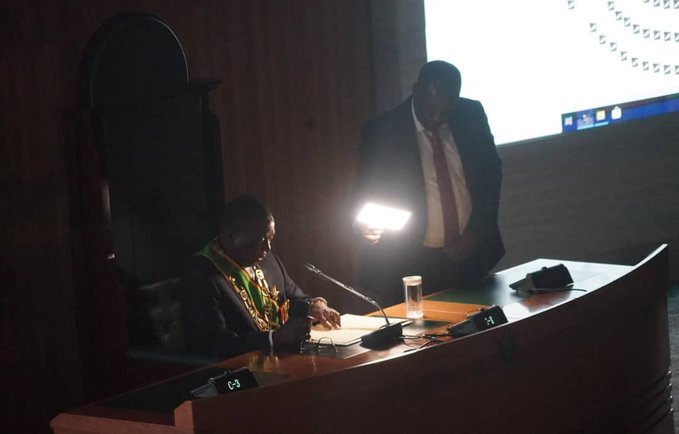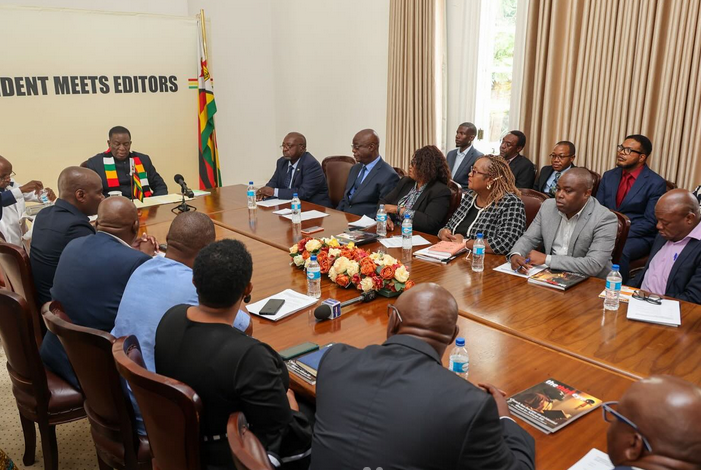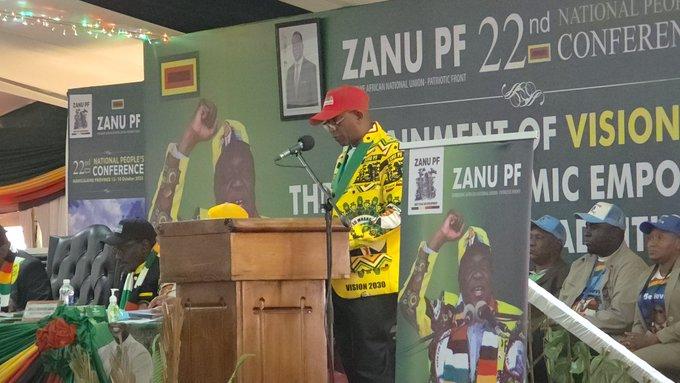IN a landmark ruling likely to open floodgates against the Reserve Bank of Zimbabwe, the High Court has ordered the central bank return to Trojan Nickel Mine Limited bank account over US$1 million it appropriated at the height of the economic meltdown in 2007.
The appropriation of the funds followed a monetary statement issued by the RBZ in October 2007 centralising all foreign currency accounts and directing the lodgement, at its doorsteps within 24 hours, of all corporate foreign currency balances held by authorised dealers.
In this case, one such dealer is BancABC where Trojan Nickel Limited maintained a foreign currency account.
While the RBZ insisted that it had no legal relationship with corporates and individuals, who remitted their money to the central bank, from which liability can arise, Justice Nicholas Mathonsi, last Thursday ruled in favour of the mining firm, opening floodgates for lawsuits against the central bank.
"Accordingly, it is ordered that judgment is hereby entered in favour of the plaintiff (Trojan Nickel Mine Limited) as against the defendant (RBZ) in the sum of US$1 007 541, 30 together with interest a tempoe morae at the prescribed rate from the date of summons to date of payment.
"The defendant is directed to deposit the said sum of US$1 007 541,30 into the plaintiff's BancABC account numberZWTROJO001 CALUSD0019 or any other account held by the plaintiff at that bank," said Justice Mathonsi.
The ruling comes after Trojan Nickel Mine Limited sued the RBZ to recover US$ 1 007 541,30 plus interest, which the central bank had withdrawn from its bank account.
In determining the case, the court considered whether Trojan Nickel Mine could recover its money directly from the RBZ in circumstances where the central bank did not have a bank-client relationship with the mining firm after it had in its regulatory function ordered the company's bank to remit its money to the central bank.
The Trojan Nickel Mine lawyer, Advocate Lewis Uriri instructed by Mr Innocent Chagonda of Atherstone and Cook, raised fundamental arguments on the matter.
He argued that the directives issued to the authorised dealers by the RBZ caused BancABC to commit a breach of its contract with its client.
The central bank, he argued, intentionally and wrongfully interfered with contractual rights.
On the other hand, RBZ lawyer Mr Tawanda Chitapi argued that there was no banker and client relationship between the parties. For that reason, he said, the RBZ did not owe the mining firm any duty.
Mr Chitapi insisted that it was the firm's bank which received money from the client hence the financial institution was the one with the obligation to pay the money to its client.
But Justice Mathonsi found against RBZ that after appropriating the Trojan Nickel Mine's money, it did not return that money.
"It had contented itself with hedging behind the non-existence of a contractual relationship between it and the plaintiff. The proverbial hiding behind a finger," said Justice Mathonsi.
The judge questioned the conduct of the RBZ and said he found against it that its actions to acquire the money and refuse to pay back the owner was one of the greatest unfathomable mysteries of this world.
"There can be no doubt that the right to private property is one of the sacrosanct rights protected by the law," said Justice Mathonsi.
"There is little doubt that the plaintiff should be protected against the arbitrary deprivation of its equity deposited at BancABC, which institution was powerless against the defendant's directive and is now unable to perform its contractual obligations, namely paying the money to the plaintiff on demand."
The judge said by its directive, the RBZ intentionally induced BancABC to breach its contract with Trojan Nickel Mine and as such an intentional inducement of a breach of contract is actionable in the country's law.
Justice Mathonsi said while he acknowledged that the RBZ was the monetary authority charged with the management of the banking sector and the formulation of banking rules, he was not shown any case laws entitling the central bank to proscribe the release of deposits to depositors or interfere with bank's obligations to pay balances to their clients on demand.
"As a matter of policy the security of bank deposits should forever be protected by our courts," he said.
"Indeed it would be an affront to the rights of depositors if ownership of their property stored with banks and the culture of banking money instead of keeping it under the pillow were to be rendered a serious economic hazard and a ruinous activity.
"Our law, which protects ownership of property, is founded on a rock of wisdom."
Justice Mathonsi said the courts should be clear and firm in enforcing principles protecting deposits.
He said the expropriation of export proceeds prior to dollarisation which have not been compensated was one of the major factors inducing weak balance sheets of business, resulting in poor economic performance.
"I am satisfied that all the requirements of unjust enrichment are met in the present case. It is also not a case that would open floodgates because, rarely do we have a situation where a depositor's foreign currency balance is appropriated the way it was in this case," said Justice Mathonsi.
Several companies, NGOs and individual have instituted legal proceedings against the RBZ over the past few months to recover their monies, which the central bank withdrew from the banks accounts.
Last year a cotton spinning company, Scottco, filed a lawsuit seeking to recover R2,6 million drawn from its two bank accounts five years ago. The matter is still pending before the High Court.
- herald
 Parliament apologises to Mnangagwa
Parliament apologises to Mnangagwa  SA decry 'non-existent' Beitbridge border post security
SA decry 'non-existent' Beitbridge border post security  Millions celebrate Diwali festival in India
Millions celebrate Diwali festival in India  Zimbabwe's dollar stock exchange surges 45%
Zimbabwe's dollar stock exchange surges 45%  Gold edges up as traders await guidance
Gold edges up as traders await guidance  Karo Platinum Project capex rises to US$546m
Karo Platinum Project capex rises to US$546m  Young Investment Professional (YIP) Graduate Programme 2019
Young Investment Professional (YIP) Graduate Programme 2019 










 Young Investment Professional (YIP) Graduate Programme 2019
Young Investment Professional (YIP) Graduate Programme 2019
Editor's Pick